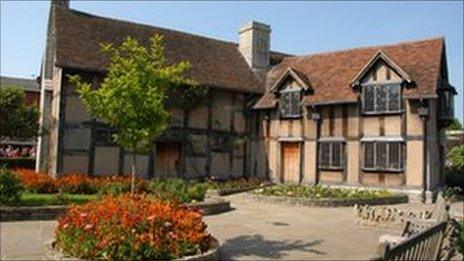Stratford-upon-Avon: Tourist numbers below pre-pandemic levels
- Published
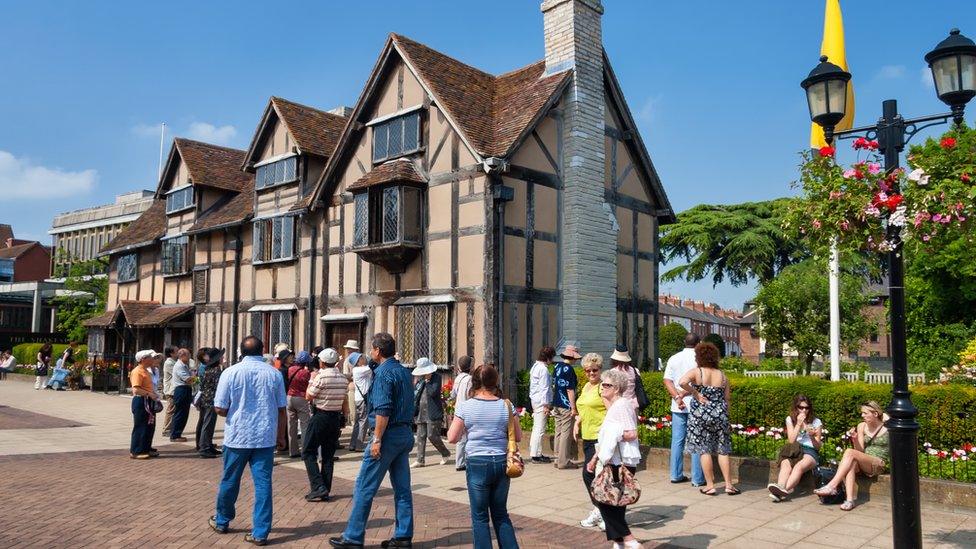
About six million people would normally visit Stratford-upon-Avon every year
The birthplace of William Shakespeare is struggling to attract tourists after the coronavirus pandemic, according to businesses.
Stratford-upon-Avon would normally welcome about six million visitors a year, but businesses said this summer footfall was nowhere near.
Nick Birch, from Avon Boating, said he had noticed a huge drop in the number of people visiting from abroad.
Andrew Lovett, from the tourism board, said the industry had taken a big hit.
Despite the Commonwealth Games, which saw more than four million visitors to the region, he said coronavirus was "still having an impact on international tourism".
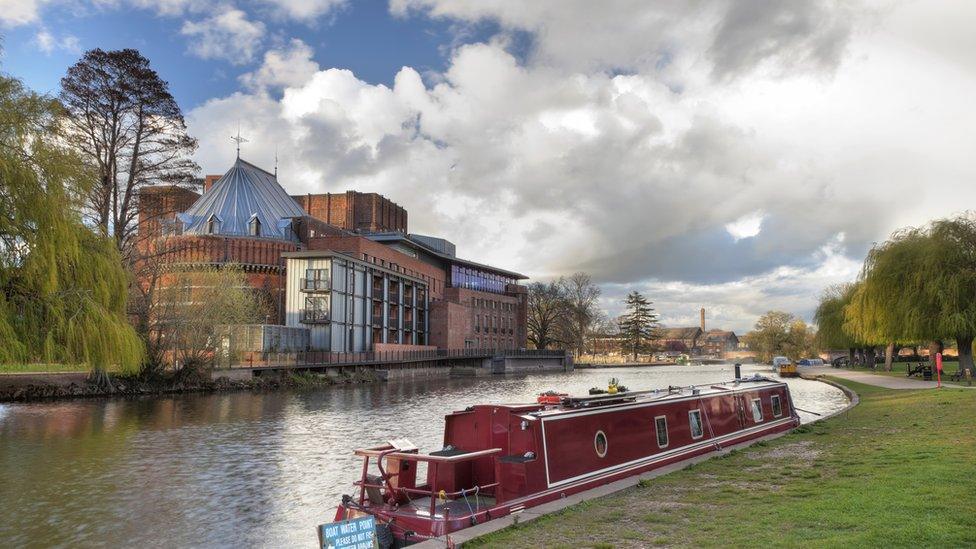
The Royal Shakespeare Company is one of the town's major attractions
During the pandemic, the local council said the town risked losing almost half of its income as venues were forced to close to limit the spread of Covid-19.
Since restrictions ended, businesses said they were still noticing a reduction of visitors and that most holiday-makers had been British.
"We're definitely missing a lot of the international visitors," Mr Birch said.
"Our perception is the town hasn't been quite as full as it was."
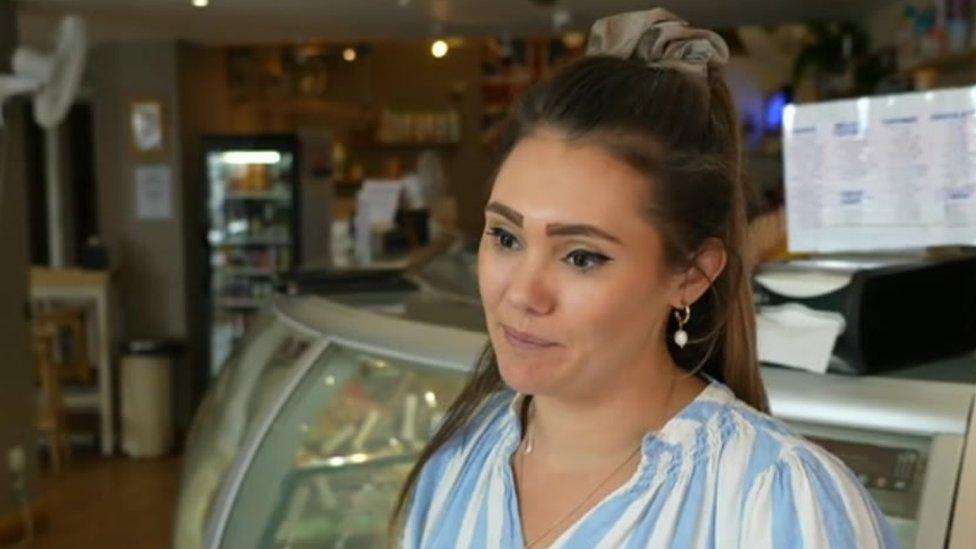
Sasha Barke said her ice cream parlour was still "very low" on takings
Sasha Barke from Hooray's Gelato Kitchen, said the lack of international tourists had had a big impact.
"Generally people's spending habits at the moment aren't what they were," she said.
"Compared to last year, it's been great, but looking back, year-on-year pre-Covid, we're still very down on takings."
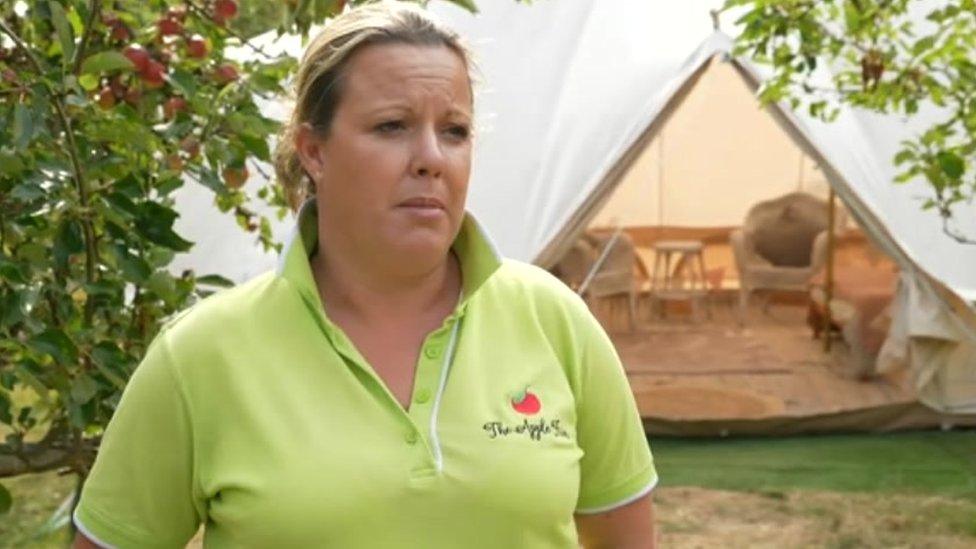
Charlotte Cleveley said more expensive glamping holidays were less popular this year
Other businesses are also concerned about the impact of the rising cost of living on their trade.
Charlotte Cleveley runs glamping site Apple Farm and is considering changes to her offering.
"Our glamping has been down, yet we've seen an increase in camping," she said.
"I think perhaps people are looking for a cheaper getaway.
"That's something we're planning to work with for next year, with the glamping... perhaps less of the luxury options and more of the middle part where people might be able to get away still."
Mr Lovett said he expected day trips to remain popular but overnight stays were "more vulnerable".

Follow BBC West Midlands on Facebook, external, Twitter, external and Instagram, external. Send your story ideas to: newsonline.westmidlands@bbc.co.uk , external
- Published3 May 2020
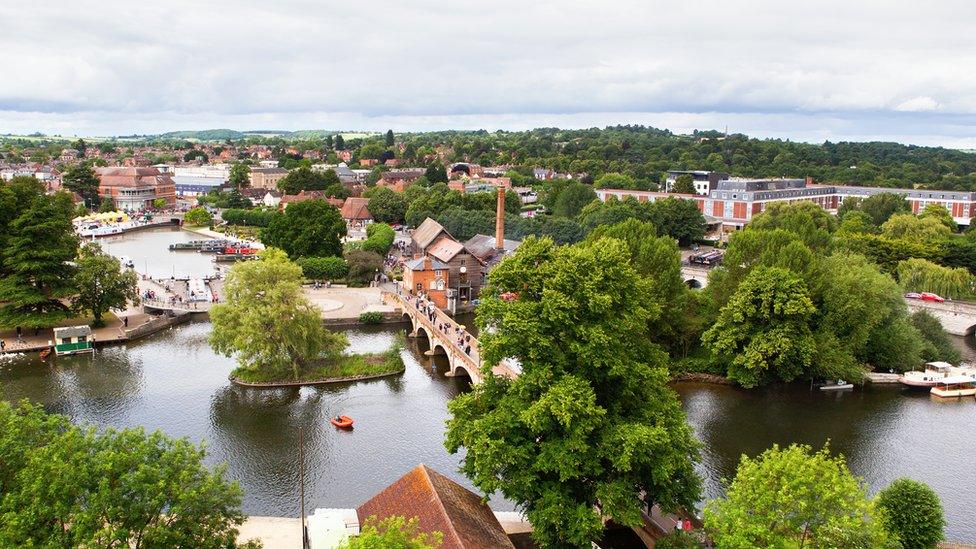
- Published24 January 2021

- Published25 April 2020
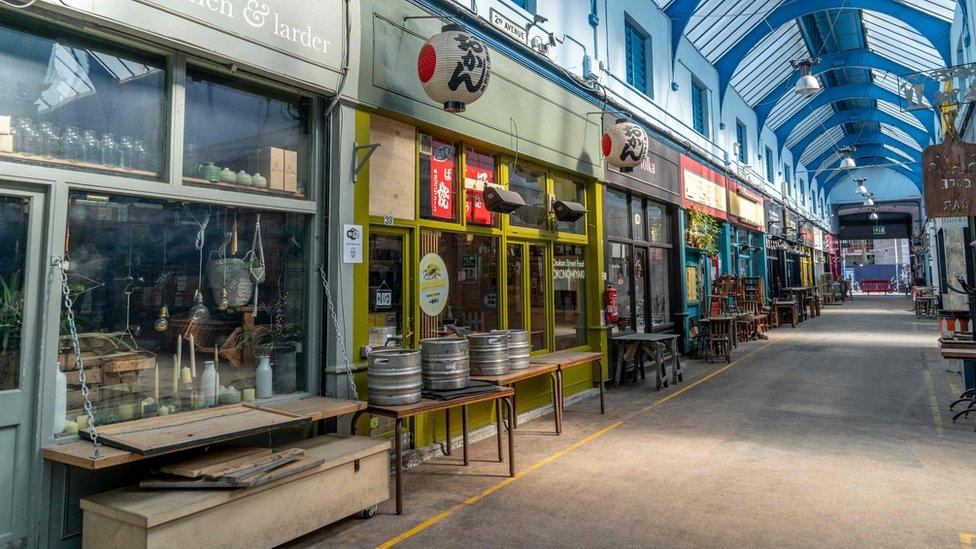
- Published1 January 2014

- Published3 May 2011
